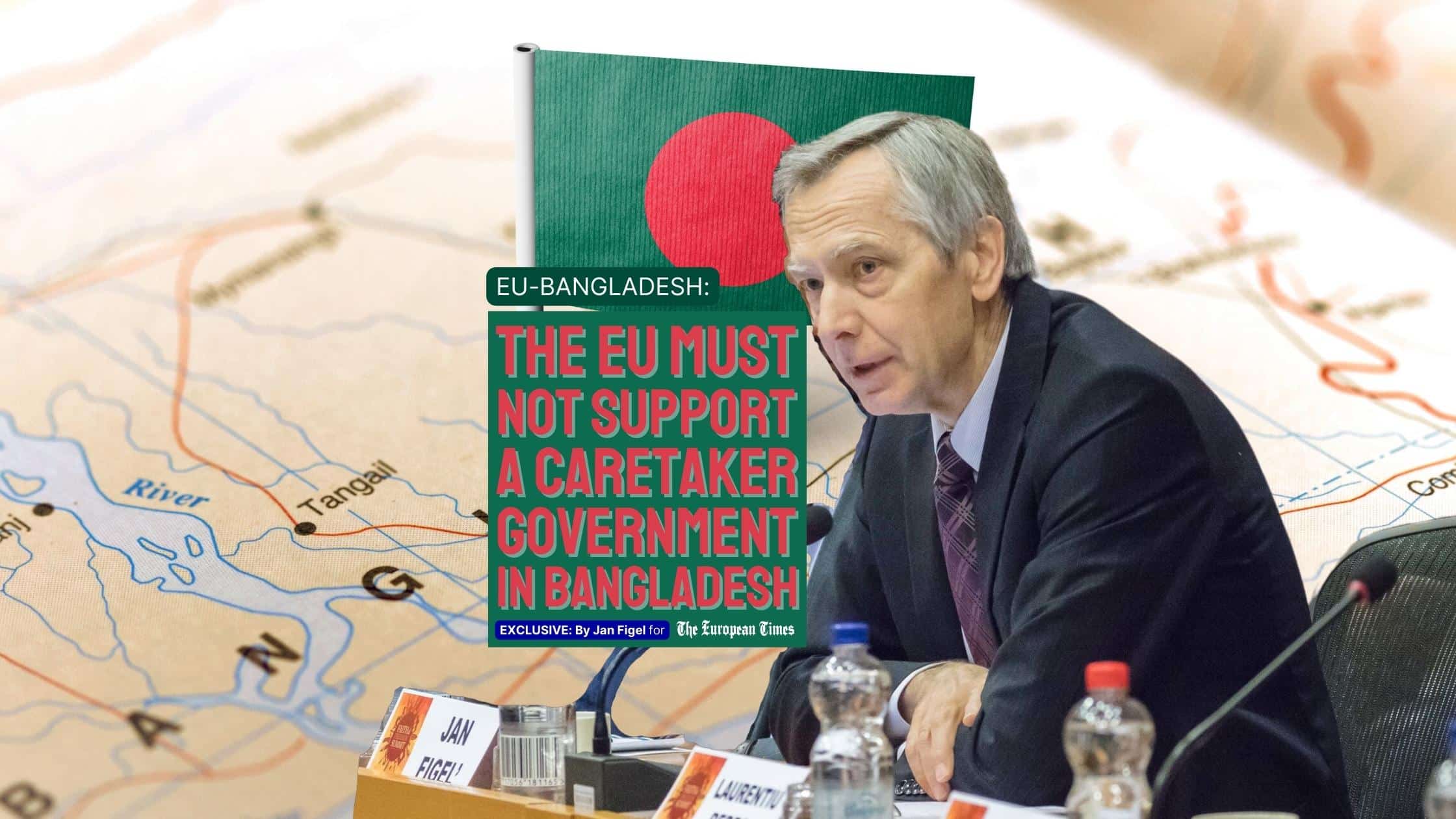Almost nine years ago, newly appointed EU foreign policy chief Federica Mogherini was being lauded for leading the world in standing up to the junta who usurped power away from the elected government in Thailand four months prior. Alongside the accolades came a foreboding warning: Once the military has its grip on power, it will not easily let it go. Specifically, it was suggested that the military will rewrite the constitution in such a way that its own grip on power will be built into the system in perpetuity.
As expected, the new constitution was promulgated in 2017, cementing the military’s powers. Much delayed elections were finally held in 2019, seeing the junta leader shed his uniform for a suit and tie to transition into Thailand’s new ‘civilian’ PM. Unfortunately, in the nine years which have transpired, the EU and much of the Western world have dropped sanctions and abandoned principle, returning to full cooperation with Thailand’s undemocratic government, choosing to take part in the charade rather than stand up for democracy.
In May of this year, a second election was held under the new constitution. This time, nine years after the coup d’Etat which swept the military into power, a landslide victory for pro-democracy parties Move Forward and Pheu Thai and a complete sidelining of the plain-clothed military political parties. Yet, as Nikkei Asia reports, three weeks after the elections, the pro-democracy coalition’s nominated PM is still in limbo while the powers that be deliberate whether to allow him to assume his rightful office.
In contrast, earlier this year the EU adopted further restrictive measures against leaders of the junta which usurped power in Thailand’s immediate neighbour to the West, Myanmar, in February 2021. One can only hope that the EU will not buckle in Myanmar as it has in Thailand and stay steadfast in its resolve to support the Burmese people in their aspiration for a fully democratic transition.
All eyes must now turn one more country to the West, with general elections scheduled in Bangladesh for January 2024. Following a highly criticized and disputed general election in 2018, Bangladesh’s main opposition party, Bangladesh National Party (BNP) and Islamist party Jamaat-e-Islami both demand the next elections be held under a caretaker government, at the threat of boycott. Veteran Bangladeshi PM of 15 years Sheikh Hasina has vowed never again to hand over power to an unelected body and has rejected this demand outright.
The last caretaker government was taken over by the military, extended its 90-day term and postponed elections by over two years from 2006-2008. Ironically, in full role-reversal, it was then-opposition Awami League (today’s ruling party)’s boycott of the 2006 elections which triggered the declaration of the State of Emergency and military intervention. Political leaders of all parties from across the political spectrum were jailed and indicted on various trumped-up charges by the caretaker government – a common practice by juntas designed to exclude popular political leaders from ever contesting future elections. In fact, both of BNP’s current co-leaders, Khaleda Zia and her son Tarique Rahman, are ineligible to run in the upcoming elections due to convictions which date back to the military-backed caretaker government of 2006-2008. Incumbent Sheikh Hasina too had been jailed during this period – which may play a major factor in her outright rejection of the opposition’s demands.
The caretaker government was a unique arrangement which does not exist anywhere else in the world, and in 2011 Bangladesh’s Supreme Court ruled that the system of interim administrations was unconstitutional. The Awami League government has reasoned that in the previous elections, a caretaker government was needed because the Election Commission (EC) never had a legal basis in Bangladesh. But in January 2022, the country passed a new law promulgating the formation of the EC.
In response to pressure from the US Secretary of State Anthony Blinken in June 2023, PM Sheikh Hasina has committed to hold free & fair elections and has welcomed international observers to monitor elections. Recent local elections in the strategic city of Gazipur in June 2023 were held peacefully and without incident, despite an independent candidate defeating the ruling party’s candidate by a narrow margin. BNP did not contest these elections – a possible harbinger of things to come. With both sides at an impasse and a likely boycott of elections by opposition, the stage is set for yet another military intervention in the region. The military seems to be chomping at the bit with anticipation. If they are to be deterred, the international community must make it clear to the generals that the consequences will be swift, harsh and personal.












 English
English French
French Spanish
Spanish German
German Dutch
Dutch Italian
Italian Danish
Danish Portuguese
Portuguese Greek
Greek Russian
Russian Swedish
Swedish Bulgarian
Bulgarian Hungarian
Hungarian Catalan
Catalan Ukrainian
Ukrainian Polish
Polish Basque
Basque Chinese (Simplified)
Chinese (Simplified) Japanese
Japanese Hebrew
Hebrew Arabic
Arabic Swahili
Swahili Amharic
Amharic Irish
Irish Afrikaans
Afrikaans Albanian
Albanian Armenian
Armenian Azerbaijani
Azerbaijani Belarusian
Belarusian Bengali
Bengali Bosnian
Bosnian Cebuano
Cebuano Chichewa
Chichewa Chinese (Traditional)
Chinese (Traditional) Corsican
Corsican Croatian
Croatian Czech
Czech Esperanto
Esperanto Estonian
Estonian Filipino
Filipino Finnish
Finnish Frisian
Frisian Galician
Galician Georgian
Georgian Gujarati
Gujarati Haitian Creole
Haitian Creole Hausa
Hausa Hawaiian
Hawaiian Hindi
Hindi Hmong
Hmong Icelandic
Icelandic Igbo
Igbo Indonesian
Indonesian Javanese
Javanese Kannada
Kannada Kazakh
Kazakh Khmer
Khmer Korean
Korean Kurdish (Kurmanji)
Kurdish (Kurmanji) Kyrgyz
Kyrgyz Lao
Lao Latin
Latin Latvian
Latvian Lithuanian
Lithuanian Luxembourgish
Luxembourgish Macedonian
Macedonian Malagasy
Malagasy Malay
Malay Malayalam
Malayalam Maltese
Maltese Maori
Maori Marathi
Marathi Mongolian
Mongolian Myanmar (Burmese)
Myanmar (Burmese) Nepali
Nepali Norwegian
Norwegian Pashto
Pashto Persian
Persian Punjabi
Punjabi Romanian
Romanian Samoan
Samoan Scottish Gaelic
Scottish Gaelic Serbian
Serbian Sesotho
Sesotho Shona
Shona Sindhi
Sindhi Sinhala
Sinhala Slovak
Slovak Slovenian
Slovenian Somali
Somali Sundanese
Sundanese Tajik
Tajik Tamil
Tamil Telugu
Telugu Thai
Thai Turkish
Turkish Urdu
Urdu Uzbek
Uzbek Vietnamese
Vietnamese Welsh
Welsh Xhosa
Xhosa Yiddish
Yiddish Yoruba
Yoruba Zulu
Zulu